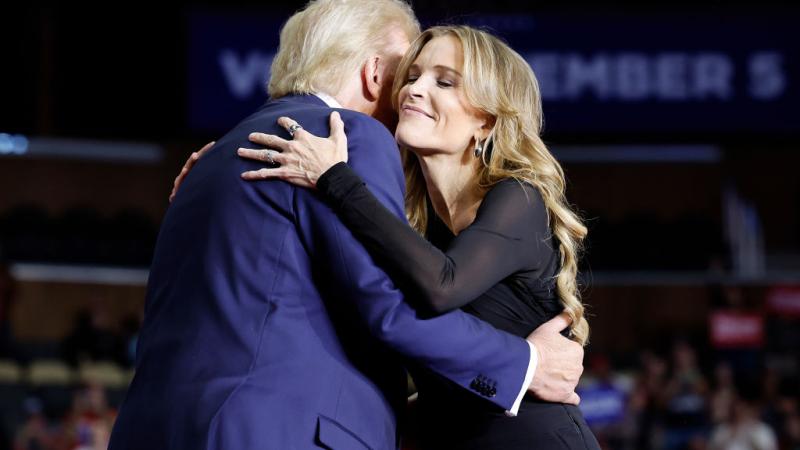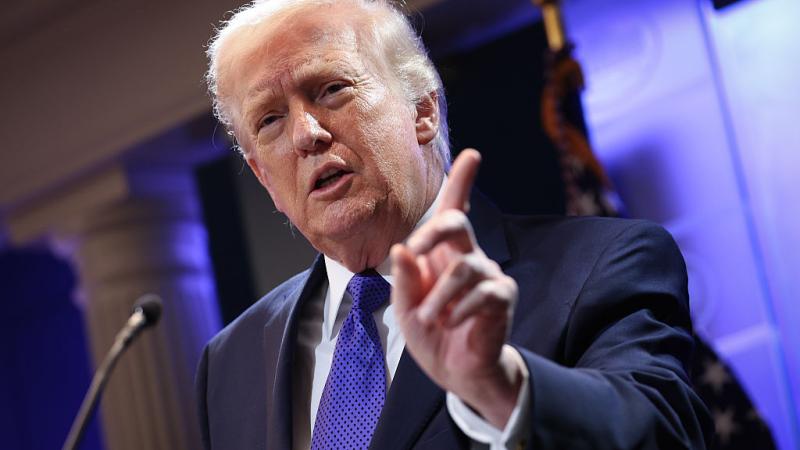DOJ rejects CNN analyst's claim in fight over White House press room access
DOJ puts White House Correspondents' Association on notice that press room is government property and only tradition gives group power to determine access.
The Justice Department has rejected a CNN political analyst's legal claim he deserved access to President Trump's coronavirus briefings, warning the White House press room is ultimately federal property and not the legal domain of journalists.
The DOJ's letter rejecting CNN and Playboy journalist Brian Karem's demands to access the briefings appeared to serve notice to the journalist-run White House Correspondents' Association (WHCA) that its power to regulate who attends White House press briefings was based only on years of "tradition" and not a legal right.
“The press Briefing Room is White House property," and Press Secretary Stephanie Grisham "merely acquiesced" to WHCA's seating arrangements for reporters during the pandemic, the department's letter stated.
The dispute arose after WHCA limited access to the Brady Press Briefing Room to a rotating group of reporters, in light of the coronavirus crisis and the need for social distancing to protect the health of journalists and government officials.
Karem, a frequent Trump critic, objected to being denied access to the briefings by WHCA while the White House allowed Chanel Rion, a reporter for conservative outlet One America News, into the briefing room independently of WHCA approval. The WHCA recently voted to ban Rion from the briefings, however Rion returned to the briefing room as Grisham's guest.
“We also understand, however, that even as you would prohibit Mr. Karem from attending press briefings, you have permitted a reporter from One America News (‘OAN’) — the President’s favorite network — to circumvent that agreed-upon system as your ‘guest’ to attend briefings, allowing that reporter access even though she was not part of the WHCA’s designated daily rotation,” Karem's lawyer Theodore J. Boutrous Jr. wrote to Grisham on Friday.
“By prohibiting Mr. Karem and similarly situated reporters from accessing the White House briefing room pursuant to their hard passes, you and the White House are engaging in exactly the type of content- and viewpoint-based discrimination that the D.C. Circuit and Supreme Court prohibit," wrote Boutrous, a partner in the Los Angeles office of Gibson, Dunn & Crutcher LLP.
Boutrous claimed Grisham’s conduct was “a plain repudiation” of her agreement with the WHCA and “violates the First Amendment.”
“Prohibiting Mr. Karem and similarly situated reporters from accessing the briefing room, while allowing a favored reporter to attend and ask questions in violation of the agreement, is textbook content discrimination,” Boutrous continued. “While Mr. Karem has no objection to OAN or anyone else being in the briefing during press conferences, your arbitrary and content-based approach is intolerable and unconstitutional. Simply put, you have openly and notoriously excluded reporters you believe to be critics of the administration like Mr. Karem and given access to favored networks like OAN. You have also purported to construct a new regime for White House access that relies on your own discretion alone.”
Boutrous noted that his client Karem has a “hard” press pass — a more permanent pass, as opposed to a temporary, paper one — that was restored by a federal court order following a dispute over his credentialing last summer after an argument with former Trump White House staffer Sebastian Gorka.
“Mr. Karem has a hard pass — one ordered restored by federal court order — and that pass entitles him to access the White House press facilities and to attend press briefings, as decades of hard pass practice and history make clear,” Boutrous concluded. “In the event you refuse access to Mr. Karem, we will have no choice but to raise this with the district court and seek an order of contempt for your unconstitutional conduct.”
Ashley A. Cheung, an attorney with the U.S. Department of Justice, disputed Boutrous’ claims in a letter dated Sunday and obtained by Just the News.
“Your letter is both factually and legally mistaken,” Cheung wrote, arguing that although the WHCA currently manages the coronavirus briefing seatings, “the press Briefing Room is White House property," and that Boutrous should take his dispute to the WHCA.
Cheung wrote that since he received his hard press pass back, "Mr. Karem is currently enjoying the full privileges that hard pass brings," and that Grisham "merely acquiesced" to the seating arrangement by WHCA during coronavirus. Cheung cited case law allowing some reporters "relatively less information" than others. Cheung also cited case law allowing a president to be interviewed by some "bona fide journalists," but not others.
“We understand the need to limit attendees to ensure health and safety, but a fair, neutral, nondiscriminatory process is essential," Boutrous told Just the News. "We have requested that the White House Correspondents’ Association give Mr. Karem and similarly-situated reporters fair access to the rotation for press conferences.”
WHCA and DOJ did not respond to questions by press time.
Read the full letters between Kadem's lawyer and the DOJ below:














